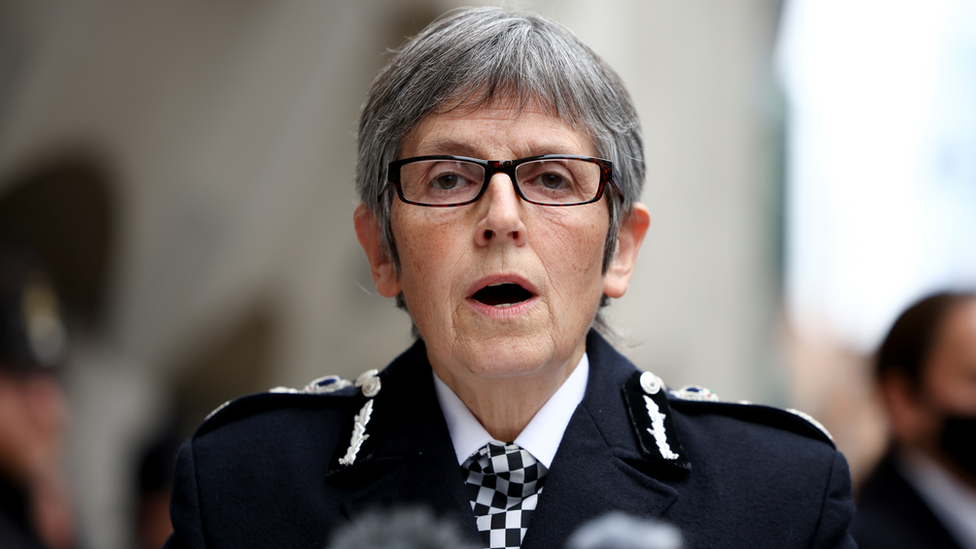Sarah Everard: Gross misconduct probe into Couzens WhatsApp group
- Published
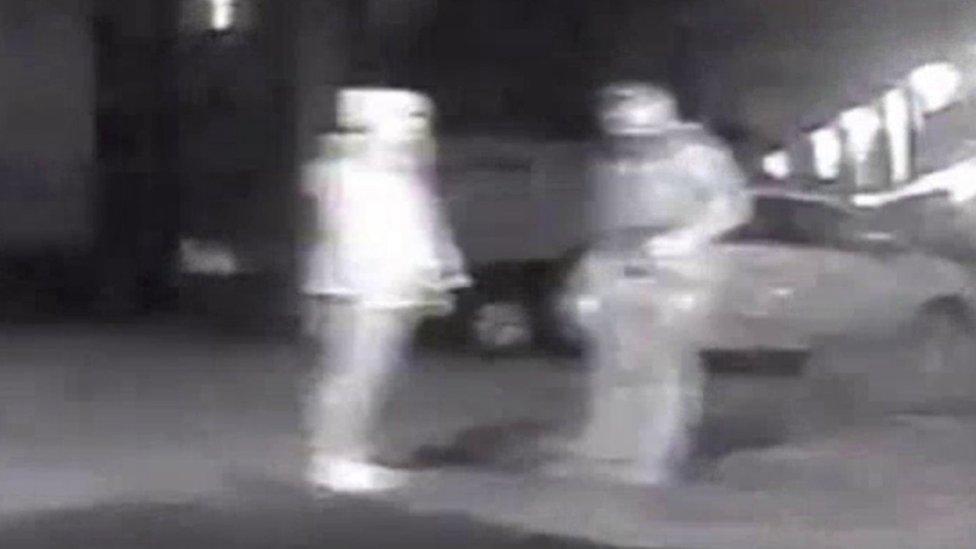
Wayne Couzens (right) is believed to have shown Sarah Everard his police warrant card
Wayne Couzens is believed to have been in a WhatsApp group with five police officers who are being investigated for gross misconduct.
The officers allegedly shared "discriminatory" messages - including misogynistic content.
Couzens raped and murdered Sarah Everard while working for the Met, after kidnapping her in a fake arrest.
The London force faces questions over whether it missed chances to stop him, and has issued safety advice to women.
Five serving officers and one former officer are under investigation by the Independent Office for Police Conduct (IOPC) for allegedly distributing messages between March and October 2019 which were discovered during Ms Everard's murder investigation.
Three of them, including the ex-officer, are subject to criminal investigation for offences under Section 127 of the Communications Act, which refers to material that is "grossly offensive or of an indecent, obscene or menacing character".
Couzens is understood not to be one of those under investigation, but was involved in sharing messages.
Sources have told the BBC that investigating Couzens would not further the interests of justice in these circumstances.
Three of the serving officers and the ex-officer are from the Metropolitan Police, one is from Norfolk Constabulary, and one serves with the Civil Nuclear Constabulary.
Couzens, 48, targeted Ms Everard, 33, on a street in south London in March, showing a warrant card and using handcuffs. He has been sentenced to a whole-life prison term.
He had been linked to two previous allegations of indecent exposure.
Policing minister Kit Malthouse said "officers up and down the land recognise the devastating consequences of this event".
"There is a job to be done to rebuild trust by the police, particularly, I have to say, in London," he told BBC Breakfast.
Policing minister Kit Malthouse says if in doubt "ask the police officer to identify themselves"
Metropolitan Police Commissioner Dame Cressida Dick faces calls to resign over the force's handling of the case, as Home Secretary Priti Patel said it raised "serious questions".
Speaking outside the Old Bailey after Couzens was sentenced, Dame Cressida said "a precious bond of trust has been damaged" and she would ensure "any lessons" were learned.
As part of renewed efforts to ease fears in the capital, the Met will step-up "reassurance patrols" and treat indecent exposure allegations more seriously.
An extra 650 new officers will patrol busy public areas in London.
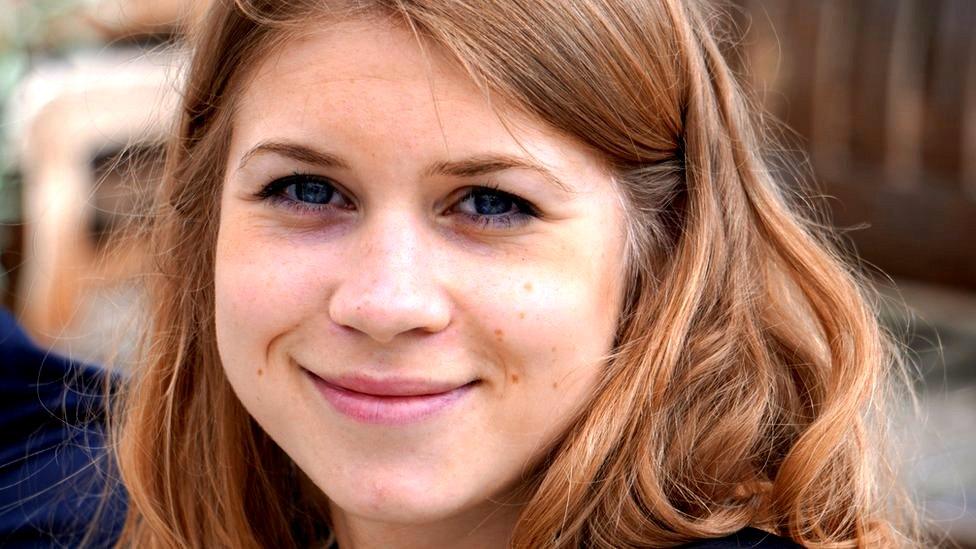
The body of Sarah Everard was found hidden in woodland
Scotland Yard admitted the case was part of a "much bigger and troubling picture".
The force advised people detained by a lone plain-clothes officer to ask "searching questions" such as why they are being stopped, where the officer's colleagues are and where the officer has come from.
The force said that, to verify the answers, people should ask to speak to an operator on a police radio to determine if the officer is genuine and acting legitimately.
It added that it understood people may be "more distrusting" as a result of the case.
In the event someone believes they are in "real and imminent danger" the Met advised they "must seek assistance - shouting out to a passer-by, running into a house, knocking on a door, waving a bus down or if you are in the position to do so calling 999".
The Met explained officers are expected to intervene when required, even when off duty, and that they routinely carry warrant cards and sometimes equipment when travelling.
Speaking to the London Assembly, Met Deputy Commissioner Sir Stephen House, said plain-clothes officers will not be deployed on their own and will be in pairs.
But he warned there would be occasions when that is not possible given off-duty officers not in uniform "put themselves on duty" when they come across an incident.
Metropolitan Police commissioner Dame Cressida Dick says the force has been "shamed" and "rocked" by the case
Couzens, who had been a police officer since 2002, transferred to the Met in 2018 from the Civil Nuclear Constabulary, where he had worked since 2011. He passed vetting checks.
Met Assistant Commissioner Nick Ephgrave admitted a vetting check on Couzens was not done correctly when he joined the Met.
It meant a link to an incident of indecent exposure in Kent in 2015, involving a vehicle linked to Couzens, was missed.
Though Mr Ephgrave said that even if it had come up in the vetting process, it would not have changed the outcome as Couzens was not named as a suspect.
Around 72 hours before Ms Everard's abduction, Met Police officers received a separate allegation of indecent exposure which also identified the vehicle involved, registered to Couzens.
He was sacked by the Met in July after pleading guilty to Ms Everard's murder.
Measures including a pilot scheme where plain-clothes officers patrol pubs and clubs were launched in England and Wales in the immediate aftermath of Ms Everard's murder.
The Met said it would publish a new strategy for tackling violence against women and girls soon.

Have you been personally affected by the issues raised in this story? Get in touch using the form below.
Please include a contact number if you are willing to speak to a BBC journalist. You can also get in touch in the following ways:
WhatsApp: +44 7756 165803
Tweet: @BBC_HaveYourSay, external
Please read our terms & conditions and privacy policy
If you are reading this page and can't see the form you will need to visit the mobile version of the BBC website to submit your question or comment or you can email us at HaveYourSay@bbc.co.uk, external. Please include your name, age and location with any submission.
Related topics
- Published1 October 2021
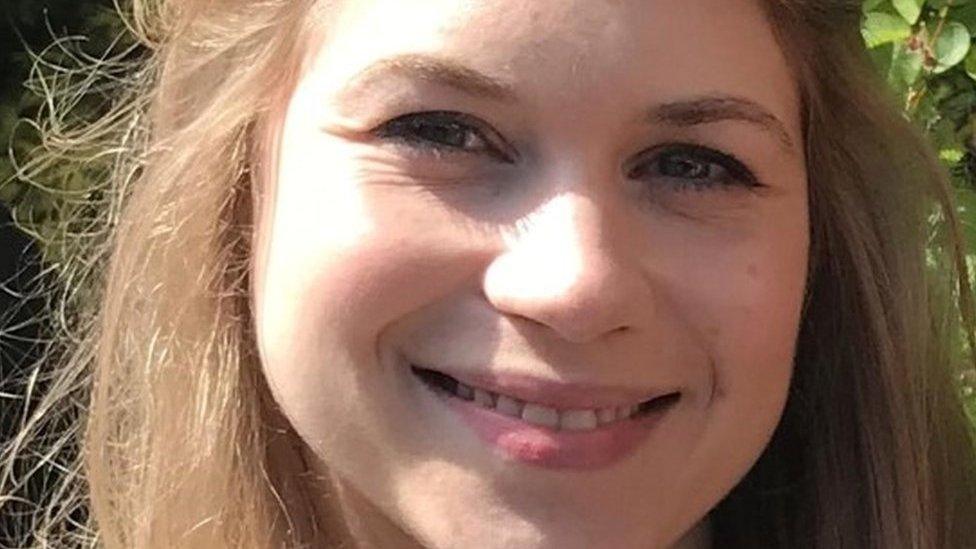
- Published1 October 2021

- Published30 September 2021
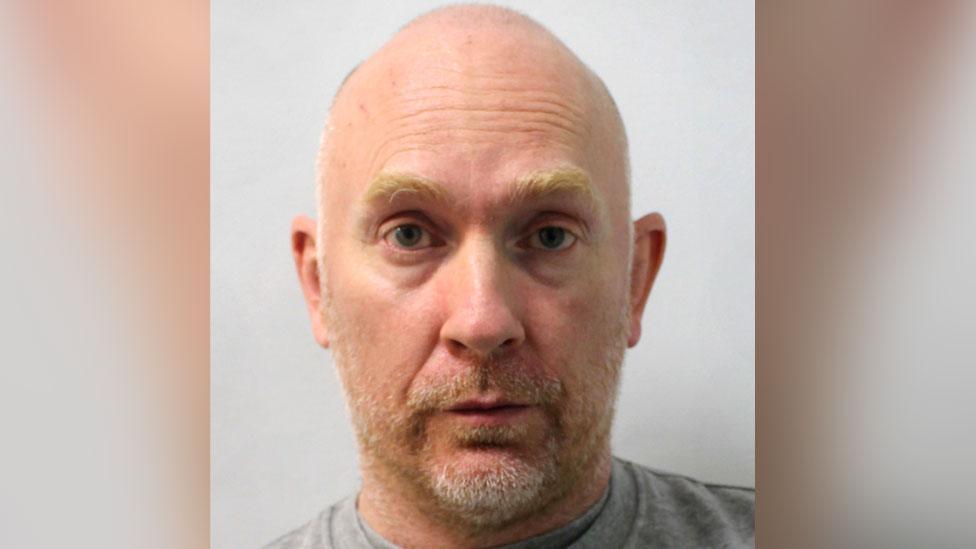
- Published30 September 2021
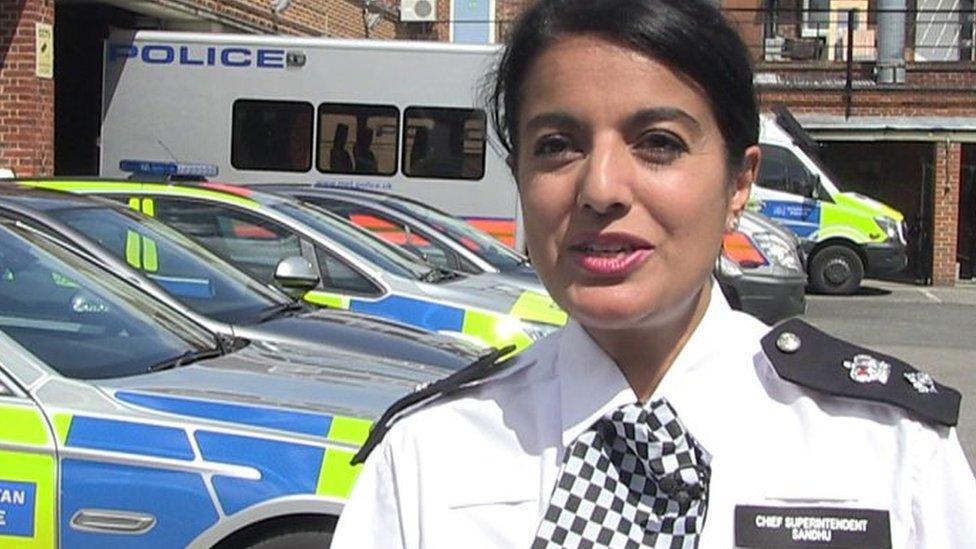
- Published30 September 2021
